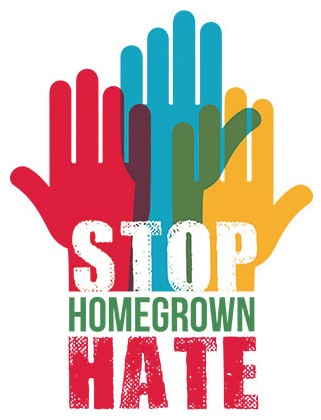Only days after a mass shooting at a gay nightclub in Florida, the judge in a hate-crime murder case in New York invoked the massacre on Tuesday as he sentenced a man to 40 years to life in prison.
The defendant, Elliot Morales, 36, was convicted in March of murder as a hate crime for killing Mark Carson, a gay black man, in the West Village in Manhattan three years ago, after spewing homophobic invectives at the victim and his companion.
“I can’t help but perceive or observe the parallel tragedy in Orlando,” the judge, A. Kirke Bartley Jr., said as he imposed the sentence in State Supreme Court in Manhattan. “That parallel is revealed in hatred, self-loathing, fear and death.”
Mr. Morales was convicted after a two-week trial during which he represented himself, assuming the dual roles of defendant and defense lawyer. Addressing Mr. Morales, Justice Bartley said the defendant’s ability to appear “calm, intelligent, well prepared, well behaved” could not deter from the fact that he also seemed to be “something worthy of a character in a Stephen King novel — in short a monster.”
“Mr. Morales, yours is a legacy of death and fear, nothing more nothing less,” the judge said.
Looking at a stone-faced crowd of Mr. Carson’s family and friends, Mr. Morales insisted that the killing was neither bias-motivated nor purposeful.
“What happened is a tragic accident,” he said. “In no part was it based on my bias toward anyone’s sexual relationship.”
Then, turning toward the judge, he added, “It is beyond my comprehension how someone like myself who happens to be bisexual and part of the L.G.B.T. community can be falsely accused and then convicted of a hate crime.”
Jurors deliberated for two days before rejecting Mr. Morales’s contention that his intimate relationships with transgender women proved he was not homophobic and that he did not kill Mr. Carson, 32, out of hatred toward gay people.
Instead, the jurors saw Mr. Morales’s behavior that evening as underscoring such prejudice.
Before his fatal encounter with Mr. Carson in May 2013, Mr. Morales stormed the Annisa restaurant on Barrow Street shouting antigay slurs and brandishing a weapon, after an employee there upbraided him for urinating on the sidewalk.
Mr. Morales left enraged and soon spotted Mr. Carson and Danny Robinson, a pair of friends from Brooklyn, dressed in shorts and tank tops. Mr. Morales taunted the men, calling them “gay wrestlers” and “faggots.” The friends challenged Mr. Morales’s mocking tone, and the confrontation moved into the shadow of a closed bookstore. There, Mr. Morales pulled out a revolver and shot Mr. Carson in the face while Mr. Robinson called the police.
Mr. Morales often flailed in offering explanations for his actions. After fleeing the scene of the murder, he told apprehending officers that he shot Mr. Carson “because he tried to act tough.” In a video taken during his arrest that Judge Bartley described as “chilling,” Mr. Morales laughed maniacally and exclaimed, “Diagnosis dead, doctor!”
At the trial itself, Mr. Morales claimed he acted in self-defense, afraid that the phone Mr. Robinson had retrieved was a weapon. The prosecution thwarted that notion, saying Mr. Morales had acted out of “bigotry” and “unjustifiable rage,” not fear.
During the sentencing, Mr. Morales first said that the shooting was “more so reckless than intentional,” then, in an inexplicable tirade, insinuated that emergency medical technicians had mistreated Mr. Carson, leading to his death.
The jury countenanced none of those justifications, and the Manhattan district attorney, Cyrus R. Vance Jr., lauded the stiff sentence. “Any life lost to gun violence is a tragedy for our city,” Mr. Vance said in a statement. “But homophobic, hate-fueled incidents like this one are particularly unconscionable. As we mourn the lives lost in Orlando, we remain committed to doing everything we can to combat and prevent crimes against L.G.B.T. New Yorkers.”
The Federal Bureau of Investigation reported in 2015 that 18.6 percent of the 5,462 so-called single-bias hate crimes in the previous year were because of the victim’s sexual orientation; 47 percent were attributable to race. A study by the National Coalition of Anti-Violence Programs shows that 24 killings of gay, lesbian, bisexual and transgender people, and of those who are H.I.V.-positive, were reported in 2015, a 20 percent increase from the previous year. But their advocates have long contended that such numbers are underreported.
Shannon Lucey, the lead prosecutor, described Mr. Morales in court as having “a lot of self-loathing issues.” She noted that while he had sexual relationships with transgender people, he never appeared with them in public. Seeing Mr. Robinson and Mr. Carter together, Ms. Lucey argued, may have prompted Mr. Morales’s discomfort with his own sexuality.
After the verdict was rendered in March, one juror said that Mr. Morales’s actions that night showed that “he was kind of categorizing people,” in a manner that exposed his bias against gay people and that culminated in the shooting of Mr. Carson.
Still, for many, the ruling provides little solace.
“Sometimes a criminal case gives people a feeling of closure, but what happened in Orlando just overshadows everything at the moment and may well for a long time,” said Donna Lieberman, the executive director of the New York Civil Liberties Union.
Mr. Robinson was not able to attend the sentencing, but offered a statement saying, “The guilt of asking him to go out with me that night, it’s like I feel it’s my fault,” he said.
Outside the courtroom, Florine Bumpars, an aunt of Mr. Carson, spoke through tears as she castigated Mr. Morales.
“He got what he deserves,” Ms. Bumpars said. “If he was sorry, he would’ve never did it.”
Source: http://www.nytimes.com/2016/06/15/nyregion/elliot-morales-sentenced-to-40-years-to-life-for-hate-crime-murder.html?rref=collection%2Ftimestopic%2FHate%20Crimes&action=click&contentCollection=timestopics®ion=stream&module=stream_unit&version=latest&contentPlacement=14&pgtype=collection
